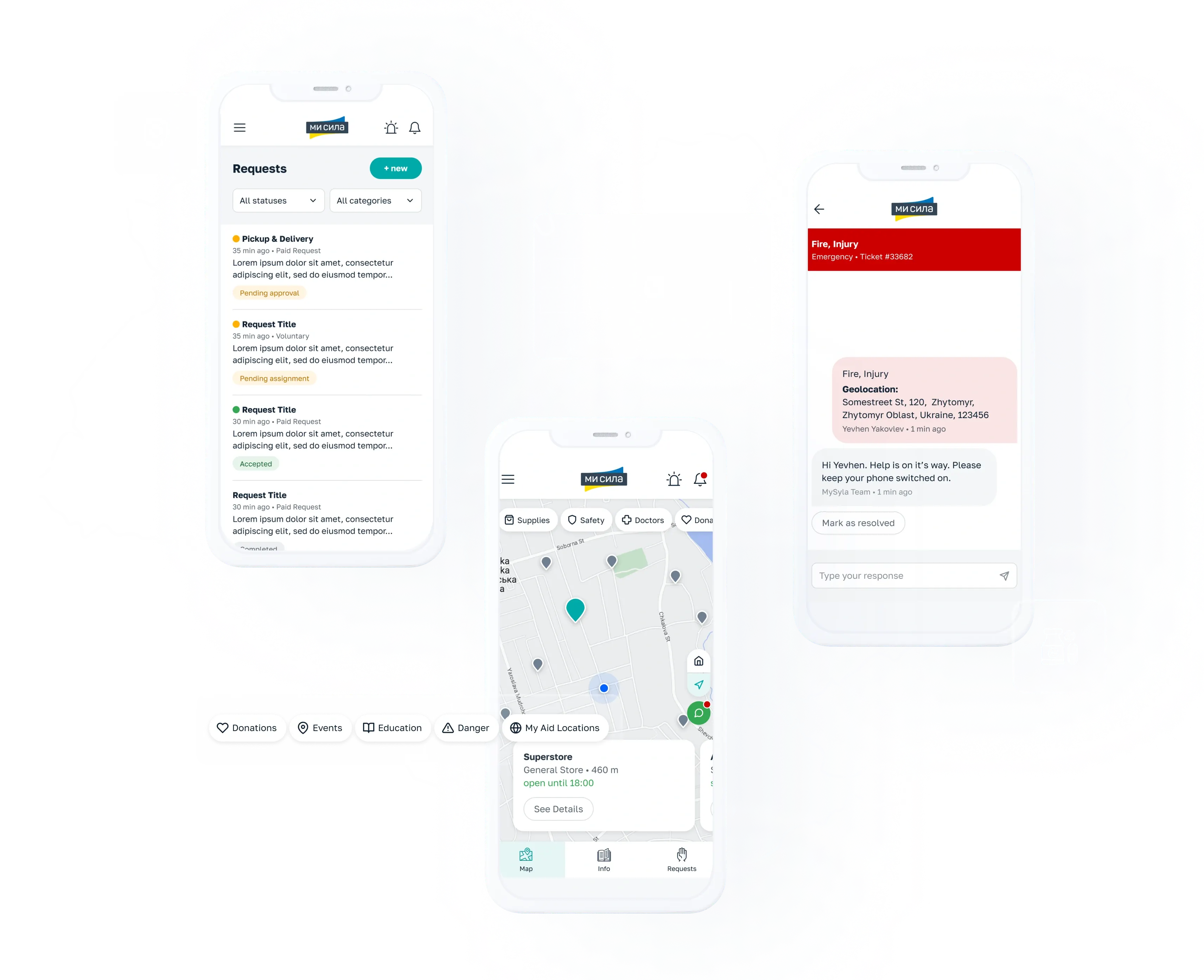In today's world, simply having embraced AI (artificial intelligence) isn't enough to dominate the competition in the market. Business owners need to make the most of their AI capabilities to drive the enterprise to new heights and gain more profit from their investments. Adaptive AI can assist with both of those aspects. Systems using this artificial intelligence can rapidly adjust to shifting circumstances, which was impossible back when AI was originally developed.
In this article, we will consider Adaptive AI and how it differs from traditional technology. Our experts at Requestum prepared a brief for you to uncover this modern type of artificial intelligence, its components, use cases, challenges, and prospects. You will also discover the real-world applications of Adaptive AI and the top strategies for its successful implementation.
What Is Adaptive AI, and Why Is It Essential for Businesses?
Imagine an AI system that can predict market shifts, optimize processes in real-time, and flexibly react to unexpected situations. It is about AI that can adapt, a cutting-edge technology that comprises artificial intelligence with a self-learning approach. Such artificial intelligence adjusts to unforeseen circumstances, even those beyond the initial programmer's scope. It does this through continuous learning and retraining based on new data encountered during runtime.
With real-time feedback, Adaptive AI can dynamically correct its learning and realign goals mid-stream. These capabilities make it perfect for digital environments where instant responses to sudden changes or new objectives are crucial, like healthcare or finances.
According to the Gartner consulting and research firm's forecast, businesses implementing Adaptive AI by 2026 are anticipated to surpass competitors. Incorporating this modern technology can give entrepreneurs up to a 25% performance boost.
Learn how AI is enhancing efficiency in agriculture
Adaptive Learning AI vs a Traditional One
Tailored AI is distinct from traditional artificial intelligence, and there are notable differences between the two systems. Their differences include scalability, flexibility, maintenance, the requirement of human interaction, and more. Let's delve into these distinguishing features to understand both technologies better.
Key Technologies and Techniques Behind Adaptive Artificial Intelligence
This AI is a pivotal tool for businesses, enabling real-time decision-making based on user interactions. Below, we will consider the key technologies behind the AI that can evolve and adapt:
NLP (natural language processing)
An AI subfield that allows machines to interpret and understand human language. This technology implements chatbots, virtual assistants, and behavior analysis to comprehend customer queries.
Adaptive testing
An AI-powered technique adjusts test difficulty based on user performance. It is commonly applied in online education platforms and certification programs.
Personalization
An AI-driven technology customizes recommendations and content based on unique user preferences and behavior. This technique is prominent in e-commerce to enhance customer experience.
Adaptive Machine Learning
This subset of AI enables machines to learn and enhance performance through data analysis. It is used for predictive insights in recommendation engines, fraud detection, and chatbots.
Predictive analytics
Predictive analytics is a technique that utilizes data mining, machine learning, and statistical algorithms to predict future results. It is integral in forecasting sales, identifying customer churn, and optimizing marketing campaigns.
Learning Methodologies that Enable AI to Adapt
The main learning methodologies that help the adaptive type of artificial intelligence to evolve according to the changing environment comprise the following:
Reinforcement learning
This critical methodology trains an artificial intelligence tool to maximize rewards by taking actions, making it well-suited for applications like robotics and gaming.
Transfer learning
This method enhances AI model performance by applying knowledge from one task to a related task, facilitating adaptation between different contexts.
Neural architecture search (NAS)
Employing machine learning algorithms, NAS looks for the optimal neural network architecture. It enables AI models to adapt to image recognition and natural language processing tasks.
Case Study: MySyla

Online learning
In dynamic environments, artificial intelligence tools are continuously updated with the latest data, enabling them to adjust to changing data distributions without complete retraining.
Applications of Adaptive AI Across Industries
Artificial intelligence that adapts applies to diverse industries:
Healthcare and sport
Utilized for personalized patient care, Adaptive AI analyzes real-time data to predict disease risks and devise tailored treatment plans. Also, artificial intelligence provides many opportunities in the sports industry.
In sports, our company undertook a project to develop a web app for home workouts. This AI solution should evaluate exercises in real-time. We tackled the task and created an app that allows users to choose an example exercise, replicate it, and get instant feedback on their performance.
Finance
Artificial intelligence enhances investment decisions and risk management by analyzing market data, predicting future trends, and detecting real-time fraud.
Education
Adaptive AI helps personalize learning experiences by analyzing student performance data in real-time, creating customized lesson plans, and providing immediate feedback.
For example, according to the Military.com website, the U.S. Army and U.S. Air Force have built an educational system that adapts its lessons to the learner. It understands what to teach, when to perform testing, and how to track progress. The U.S. Department of Defense sees great perspectives for integrating AI on a larger scale.
Transportation
The implementation of Adaptive AI helps streamline vehicle traffic flow, lower congestion on the roads, and more. Artificial intelligence analyzes patterns and adjusts signals in real-time, resulting in shorter commute times.
At Requestum, we craft AI solutions dedicated to the transportation industry. Recently, we developed a module that accurately defines and validates parking violations. Thanks to AI capabilities, these violations can be easily distinguished between true and false positives.
Manufacturing
AI streamlines production processes by analyzing data, adopting schedules, and optimizing machine settings. These capabilities help reduce energy consumption and improve efficiency.
Considerations and Challenges
Despite the promising prospects of Adaptive AI, it presents particular challenges:
Ethical considerations
As AI systems evolve, their decision-making transparency may decrease, posing concerns about accountability and bias. It necessitates rigorous monitoring and regulatory measures.
Data dependency
The effectiveness of tailoring AI hinges on substantial, varied data for learning and adaptation. Inadequate or biased data can result in lower adaptations and compromised performance.
Computational complexity
AI methods, like neural architecture search, can be computationally intensive. Addressing this issue demands efficient algorithms and robust hardware for practical implementation.
Build smarter, faster, and scalable software with us
Future of Adaptive AI: Prospects and Innovations
As technology progresses, AI is increasingly integral to business tools, shaping the future of work. The evolution of adaptive artificial intelligence promises the following trends:
Sustainable technologies in focus
Addressing sustainability concerns, businesses are incorporating AI to achieve responsible technology use, with a notable emphasis on investing in sustainable tech trends for environmental and financial benefits.
Industry cloud platforms
Such platforms are forecasted to be crucial for profits by 2024, with over 50% of projects relying on cloud platforms by 2027. Adaptive AI can provide flexibility and scalability benefits to the cloud market.
The power of observability in decision-making
Observability, utilizing logs and metrics, enables informed decision-making even in challenging data scenarios, providing valuable insights.
Rise of super apps
Allied Market Research platform forecasts the further development of "super apps" that consolidate various applications into one. They simplify user experiences and are expected to be prevalent globally soon. Implementing AI that adapts will be a powerful accelerator for super apps.
Best Strategies for Adaptive AI Implementation
Here are the best practices for implementing adaptable artificial intelligence:
Request formulating
It is essential to understand the problem clearly to identify relevant information, training data, and the algorithmic approach for your Adaptive AI system. Our development process begins with discovering the project and its requirements on a call with a client.
Data quality and diversity
Poor-quality training data can hamper system modeling. There is a need for quality data training mechanisms and a diversity of data to ensure the system learns from various examples.
Fairness and ethics of Adaptive AI
We constantly monitor fairness and ethics to prevent harm or discrimination, employing equity indicators to measure equal treatment across different groups. Our experts regularly check training data and algorithms for bias and take corrective actions if needed.
Testing and verification
Based on our experience, it is crucial to implement a robust testing and verification system. It helps to ensure accuracy and reliability, identifying and addressing any issues or errors impacting system performance.
Conclusion
Adaptive artificial intelligence revolutionizes technological areas by constantly learning and adjusting to real-world scenarios. Its flexibility ensures superior performance, seamlessly integrating into diverse business applications. This AI brings transformative benefits, providing a competitive edge, cost savings, personalized decision-making, and improved risk management. Implementing adaptive learning in artificial intelligence is necessary for businesses' sustained growth and success.
If you're ready to harness the power of Adaptive AI and propel your business forward, don't hesitate to contact us. Our team of experts is here to guide you through the process and help you achieve the technological advancement your business deserves.

Our team is dedicated to delivering high-quality services and achieving results that exceed clients' expectations. Let’s discuss how we can help your business succeed.


SHARE: